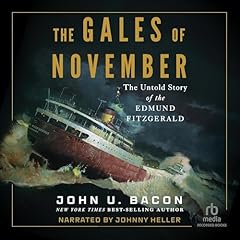
The Burning of the World
The Great Chicago Fire and the War for a City's Soul
No se pudo agregar al carrito
Solo puedes tener X títulos en el carrito para realizar el pago.
Add to Cart failed.
Por favor prueba de nuevo más tarde
Error al Agregar a Lista de Deseos.
Por favor prueba de nuevo más tarde
Error al eliminar de la lista de deseos.
Por favor prueba de nuevo más tarde
Error al añadir a tu biblioteca
Por favor intenta de nuevo
Error al seguir el podcast
Intenta nuevamente
Error al dejar de seguir el podcast
Intenta nuevamente
$0.00 por los primeros 30 días
POR TIEMPO LIMITADO
Obtén 3 meses por US$0.99 al mes
La oferta termina el 21 de enero de 2026 11:59pm PT.
 Exclusivo para miembros Prime: ¿Nuevo en Audible? Obtén 2 audiolibros gratis con tu prueba.
Exclusivo para miembros Prime: ¿Nuevo en Audible? Obtén 2 audiolibros gratis con tu prueba.
Solo $0.99 al mes durante los primeros 3 meses de Audible Premium Plus.
1 bestseller o nuevo lanzamiento al mes, tuyo para siempre.
Escucha todo lo que quieras de entre miles de audiolibros, podcasts y Originals incluidos.
Se renueva automáticamente por US$14.95 al mes después de 3 meses. Cancela en cualquier momento.
Elige 1 audiolibro al mes de nuestra inigualable colección.
Escucha todo lo que quieras de entre miles de audiolibros, Originals y podcasts incluidos.
Accede a ofertas y descuentos exclusivos.
Premium Plus se renueva automáticamente por $14.95 al mes después de 30 días. Cancela en cualquier momento.
Compra ahora por $22.50
-
Narrado por:
-
Sean Patrick Hopkins
-
De:
-
Scott W. Berg
In the fall of 1871, Chicagoans knew they were due for the “big one”—a massive, uncontrollable fire that would decimate the city. It had been bone-dry for months, and a recent string of blazes had nearly outstripped the fire department’s already scant resources. Then, on October 8, a minor fire broke out in the barn of Irishwoman Kate Leary. A series of unfortunate mishaps and misunderstandings along with insufficient preparation and a high south-westerly wind combined to set the stage for an unmitigated catastrophe.
The conflagration that spread from the Learys' property quickly overtook the neighborhood, and before long the floating embers had been cast to the far reaches of the city. Nothing to the northeast was safe. Families took to the streets with every possession they could carry. Powerful gusts whipped the flames into a terrifying firestorm. The Chicago River boiled. Over the next forty-eight hours, Chicago fell victim to the largest and most destructive natural disaster the United States had yet endured.
The effects of the Great Fire were devastating. But they were also transforming. Out of the ashes, faster than seemed possible, rose new homes, tenements, hotels, and civic buildings, as well as a new political order. The elite seized the reconstruction to crack down on vice, control the disbursement of vast charitable funds, and rebuild the city in their image. But the city’s working class recognized only a naked power grab that would challenge their traditions, hurt their chances to keep their hard-earned property, and move power out of the hands of elected officials and into private interests. As soon as the battle against the fire ended, another battle for the future of the city erupted between its entrenched business establishment and its poor and immigrant laborers and shopkeepers.
An enrapturing account of the fire’s inexorable march and an eye-opening look at its aftermath, The Burning of the World tells the story of one of the most infamous calamities in history and the new Chicago it precipitated—a disaster that still shapes American cities to this day.
Los oyentes también disfrutaron:




















Las personas que vieron esto también vieron:







My only complaint has nothing to do with the book or the story just with the automated voice that read the book. The performance is mediocre at best.
A must for anyone looking to learn more about Pittsburgh sports history.
Se ha producido un error. Vuelve a intentarlo dentro de unos minutos.
What rose from the ashes
Se ha producido un error. Vuelve a intentarlo dentro de unos minutos.
Great description, okay analysis
Se ha producido un error. Vuelve a intentarlo dentro de unos minutos.


